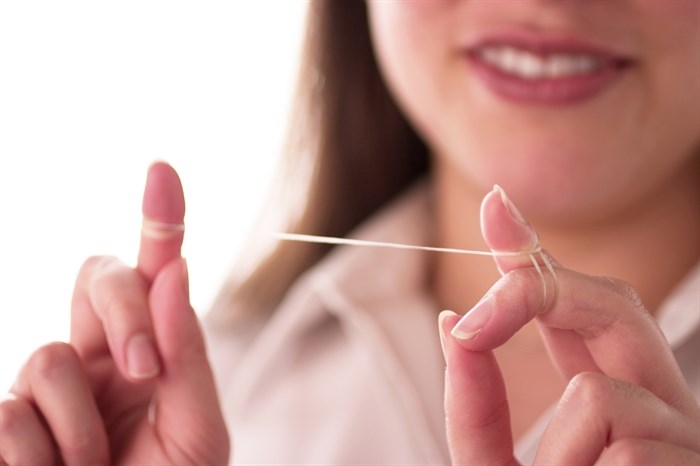
Image Credit: Shutterstock
August 03, 2016 - 6:00 AM
TORONTO - There may be sparse evidence in the medical literature that flossing helps prevent cavities and gum disease, but the Canadian Dental Association says that, for dentists, the proof is in a patient's mouth.
The Associated Press looked at the most rigorous research over the past decade and found the evidence of flossing having benefit was "weak, very unreliable," and the studies were of "very low" quality. "The majority of available studies fail to demonstrate that flossing is generally effective in plaque removal," a 2015 review said.
But Dr. Larry Levin, president-elect of the Canadian Dental Association (CDA), maintains that patients who follow a daily routine of flossing, brushing and using other plaque-removing devices have better overall oral health than those who don't.
"What general dentists like myself are aware of is what they see in their patients' mouths on a day-in, day-out basis," Levin said Tuesday from Hamilton, where he practises.
"And that is that patients who have good oral hygiene through brushing, flossing and cleaning between their teeth, and are making efforts to reduce the amount of sugar in their diet ... they are seeing good results and are having positive oral health.
"Those who take shortcuts or perhaps don't take the time to do those things are finding they continue to have dental problems," he said, pointing to tooth decay and periodontal disease as the two most common repercussions of unchecked plaque buildup.
Plaque is a bacterial biofilm that occurs on the surfaces of teeth. When it reacts with sugar from the diet, an acid is formed that can eat into the teeth, causing cavities. Plaque buildup also can cause inflammation of the gums, or gingivitis, which left uncontrolled can lead to bone-destroying periodontitis.
Levin said the goal is to dislodge and remove as much plaque as possible with daily oral care.
"Whether you do that with a toothbrush or an interdental cleaner or floss or a little wooden stick or any other tool that might be helpful, once the plaque is being removed, you're going to have much better dental health than if you are leaving plaque in place to cause problems," he explained.
"Flossing is just one tool in your armamentarium to remove the plaque."
While some people have no trouble incorporating flossing into their daily oral health routine, many others balk at the ritual of slipping the thread- or tape-like material between their teeth, Levin conceded.
And despite the CDA's recommendation that flossing should be done at least once a day along with brushing, only 28 per cent of Canadians routinely floss at least five days a week, the organization says on its website.
"We find flossing to be helpful for a lot of people, so we encourage people to floss unless you have something else that's proven to be helpful," said Levin, acknowledging that the lack of scientific evidence showing benefit may lead some people to believe they can give flossing a pass.
"But if your stopping flossing means that there's going to be a buildup of plaque between your teeth, then I think you're doing yourself a disservice and you're more likely to develop cavities and periodontal disease because of that," he said.
"And I would hate to see that happen because there isn't a definitive study that shows flossing itself works."
Follow @SherylUbelacker on Twitter.
News from © The Canadian Press, 2016